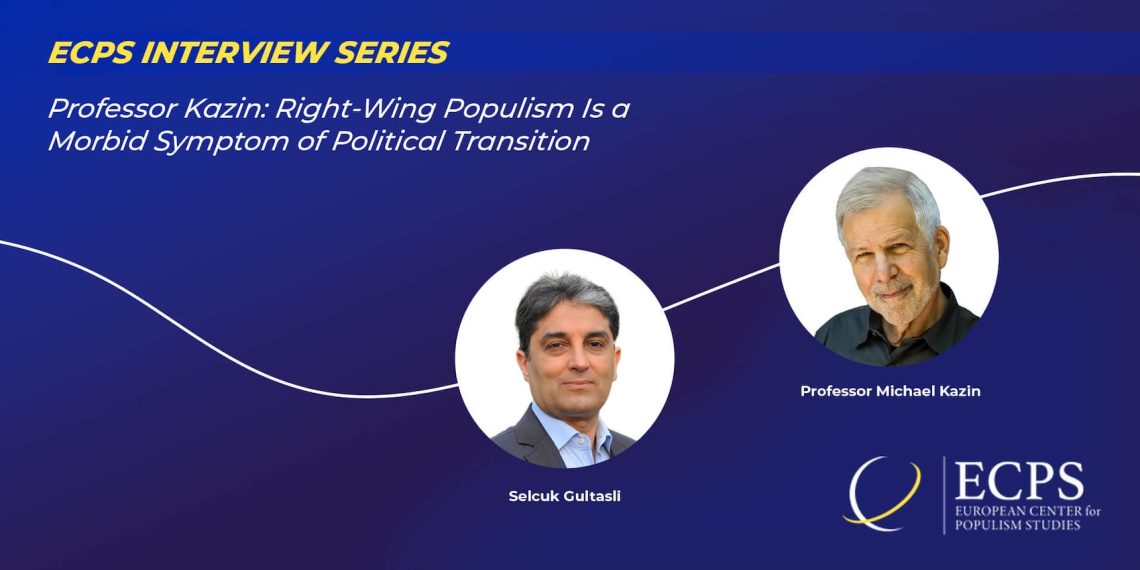In a compelling interview with the ECPS, renowned historian Professor Michael Kazin explores the rise of right-wing populism as a “morbid symptom” of today’s political transition. Drawing on Antonio Gramsci’s theory of interregnum, Kazin analyzes Donald Trump’s presidency, highlighting its profound impact on American and global politics. From galvanizing his MAGA base by aligning economic grievances with cultural conservatism to forging ties with far-right leaders abroad, Trump’s leadership reflects the challenges of this transitional era. Kazin also envisions the potential for a progressive populism rooted in economic justice to counterbalance these dynamics.
Interview by Selcuk Gultasli
Renowned historian and scholar of American politics and social movements, Professor Michael Kazin of Georgetown University, offers a thought-provoking analysis of right-wing populism in the context of Donald Trump’s presidency in a comprehensive interview with the European Center for Populism Studies (ECPS). Framing contemporary politics as an "interregnum"—a period of transition—Professor Kazin draws on Antonio Gramsci’s observation that such times often produce "morbid symptoms," which he associates with the global rise of right-wing populism. He explores how Trump’s leadership embodies this phenomenon, highlighting its implications for both domestic and international politics.
In the interview, Professor Kazin delves into Trump’s unique ability to sustain a populist movement despite his focus on personal popularity over policy. He discusses how Trump has galvanized his base by aligning economic grievances with cultural conservatism, creating a potent political force that continues to shape American political discourse. Professor Kazin critiques Trump’s approach to governance, describing his first administration as “wretched,” marked by policy ignorance and self-serving actions. However, he acknowledges that Trump’s movement, particularly the MAGA base, has no parallel within the Democratic Party, providing him with a solid foundation of unwavering support.
Professor Kazin also examines the potential global ripple effects of Trump’s second term, noting his alignment with leaders like Viktor Orbán and the admiration he garners from right-wing populist movements in Europe. While Trump’s “America First” stance complicates the formation of international alliances, Professor Kazin suggests that his presidency could embolden far-right leaders worldwide. However, he tempers this with cautious optimism, emphasizing the resilience of American democratic institutions and the structural limits of Trump’s power.
Finally, Professor Kazin explores the broader dynamics of populism, contrasting left- and right-wing variants. He argues that left-wing populism, rooted in economic justice and social democracy, offers a constructive path forward. As global demands for equitable governance grow, Professor Kazin envisions the potential for a revival of progressive populism that challenges elite power while addressing urgent issues like economic inequality and climate change.
The interview with Professor Kazin offers a nuanced perspective on Trump’s presidency, the resilience of democratic institutions, and the evolving role of populism in shaping both domestic and global politics.


